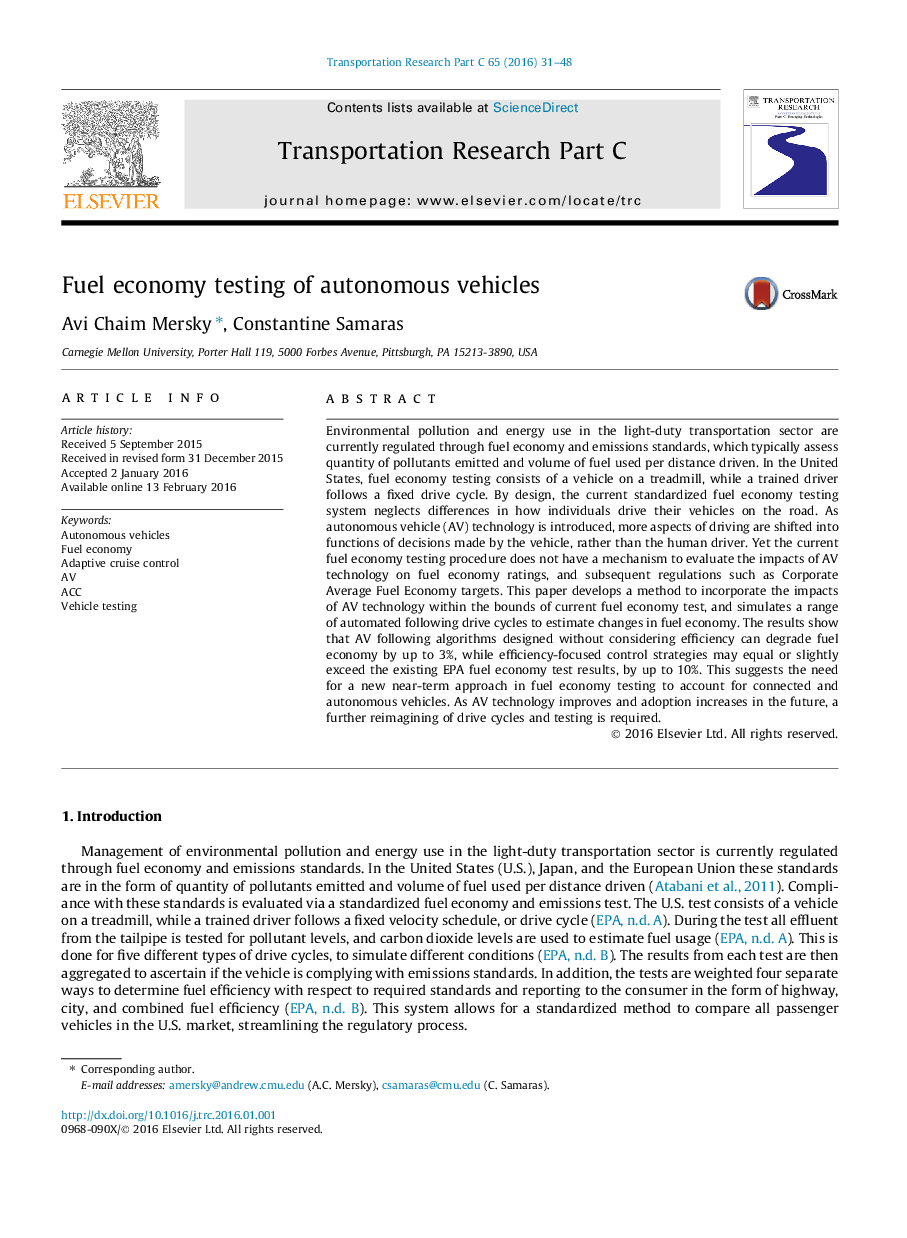| کد مقاله | کد نشریه | سال انتشار | مقاله انگلیسی | نسخه تمام متن |
|---|---|---|---|---|
| 6936476 | 868861 | 2016 | 18 صفحه PDF | دانلود رایگان |
عنوان انگلیسی مقاله ISI
Fuel economy testing of autonomous vehicles
ترجمه فارسی عنوان
تست اقتصاد سوخت خودروهای خودمختار
دانلود مقاله + سفارش ترجمه
دانلود مقاله ISI انگلیسی
رایگان برای ایرانیان
کلمات کلیدی
موضوعات مرتبط
مهندسی و علوم پایه
مهندسی کامپیوتر
نرم افزارهای علوم کامپیوتر
چکیده انگلیسی
Environmental pollution and energy use in the light-duty transportation sector are currently regulated through fuel economy and emissions standards, which typically assess quantity of pollutants emitted and volume of fuel used per distance driven. In the United States, fuel economy testing consists of a vehicle on a treadmill, while a trained driver follows a fixed drive cycle. By design, the current standardized fuel economy testing system neglects differences in how individuals drive their vehicles on the road. As autonomous vehicle (AV) technology is introduced, more aspects of driving are shifted into functions of decisions made by the vehicle, rather than the human driver. Yet the current fuel economy testing procedure does not have a mechanism to evaluate the impacts of AV technology on fuel economy ratings, and subsequent regulations such as Corporate Average Fuel Economy targets. This paper develops a method to incorporate the impacts of AV technology within the bounds of current fuel economy test, and simulates a range of automated following drive cycles to estimate changes in fuel economy. The results show that AV following algorithms designed without considering efficiency can degrade fuel economy by up to 3%, while efficiency-focused control strategies may equal or slightly exceed the existing EPA fuel economy test results, by up to 10%. This suggests the need for a new near-term approach in fuel economy testing to account for connected and autonomous vehicles. As AV technology improves and adoption increases in the future, a further reimagining of drive cycles and testing is required.
ناشر
Database: Elsevier - ScienceDirect (ساینس دایرکت)
Journal: Transportation Research Part C: Emerging Technologies - Volume 65, April 2016, Pages 31-48
Journal: Transportation Research Part C: Emerging Technologies - Volume 65, April 2016, Pages 31-48
نویسندگان
Avi Chaim Mersky, Constantine Samaras,
